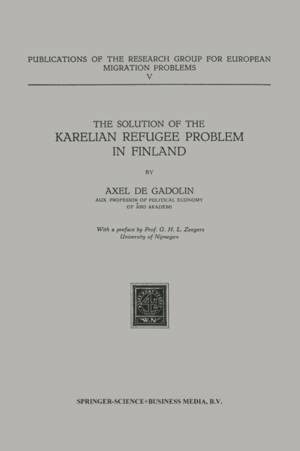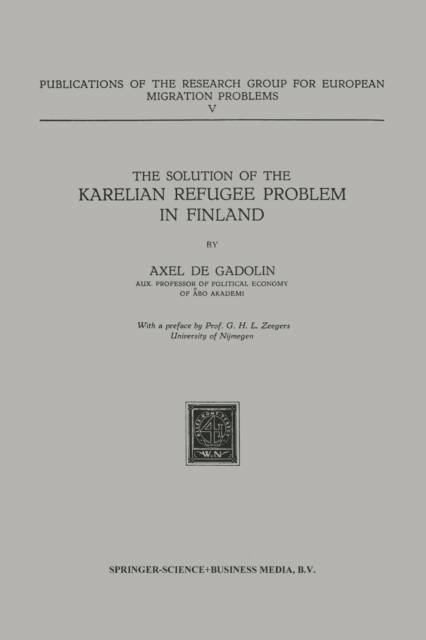
Bedankt voor het vertrouwen het afgelopen jaar! Om jou te bedanken bieden we GRATIS verzending (in België) aan op alles gedurende de hele maand januari.
- Afhalen na 1 uur in een winkel met voorraad
- In januari gratis thuislevering in België
- Ruim aanbod met 7 miljoen producten
Bedankt voor het vertrouwen het afgelopen jaar! Om jou te bedanken bieden we GRATIS verzending (in België) aan op alles gedurende de hele maand januari.
- Afhalen na 1 uur in een winkel met voorraad
- In januari gratis thuislevering in België
- Ruim aanbod met 7 miljoen producten
Zoeken
Omschrijving
Dr de Gadolin's study calls attention to a country, a people, and a problem about which in general much too little is known outside Finland. To the extent that it was possible, the valiant and industrious Finnish people have endeavored to overcome the difficulties created by two wars and the consequent onerous peace terms. One of the most stupendous problems was that of the Finnish refugees evacuated from the Karelian isthmus, Salla, Petsamo, and the leased peninsula of Porkala. The lost territory, with a total area of 45,000 square kilometers, had important industrial plants and traffic networks, including the very important Saima Canal, and large expanses of arable land and forest. Some 450,000 persons, or 12 percent of the total population at that time, had to be resettled in the remainder of Finland, particularly in the southern provinces. In his detailed description of how this difficult problem was solved, even if at the cost of a sharpened inflation, Dr de Gadolin strongly emphasizes the financial and economic aspects. It is fortunate for Finland that, though situated within the Russian sphere of influence, it nevertheless belongs to the Swedish-Finnish neutral bloc, and thus was able to maintain its economic relations with the West.
Specificaties
Betrokkenen
- Auteur(s):
- Uitgeverij:
Inhoud
- Aantal bladzijden:
- 47
- Taal:
- Engels
- Reeks:
- Reeksnummer:
- nr. 5
Eigenschappen
- Productcode (EAN):
- 9789401504171
- Verschijningsdatum:
- 1/01/1952
- Uitvoering:
- Paperback
- Formaat:
- Trade paperback (VS)
- Afmetingen:
- 156 mm x 234 mm
- Gewicht:
- 108 g

Alleen bij Standaard Boekhandel
+ 184 punten op je klantenkaart van Standaard Boekhandel
Beoordelingen
We publiceren alleen reviews die voldoen aan de voorwaarden voor reviews. Bekijk onze voorwaarden voor reviews.









